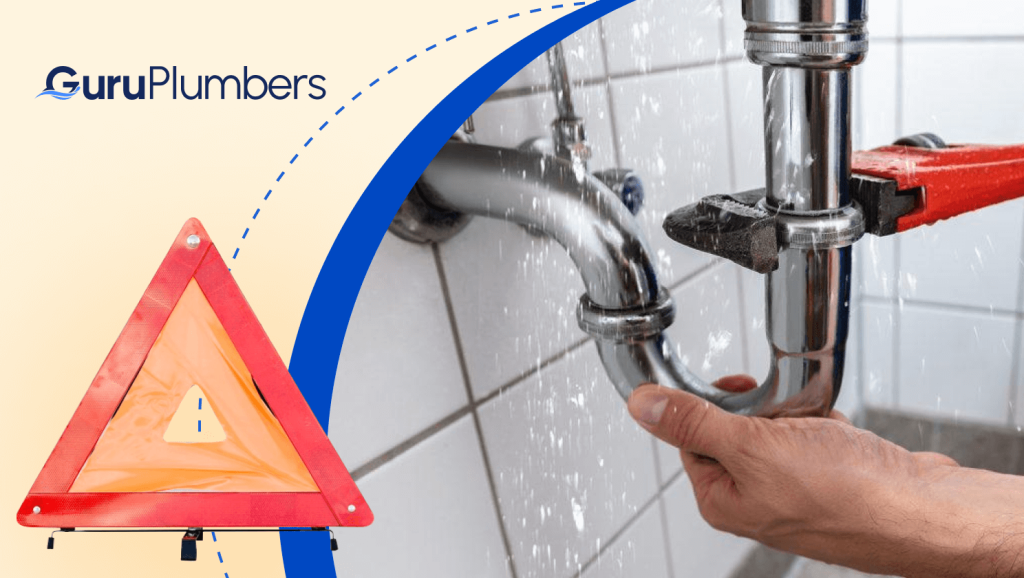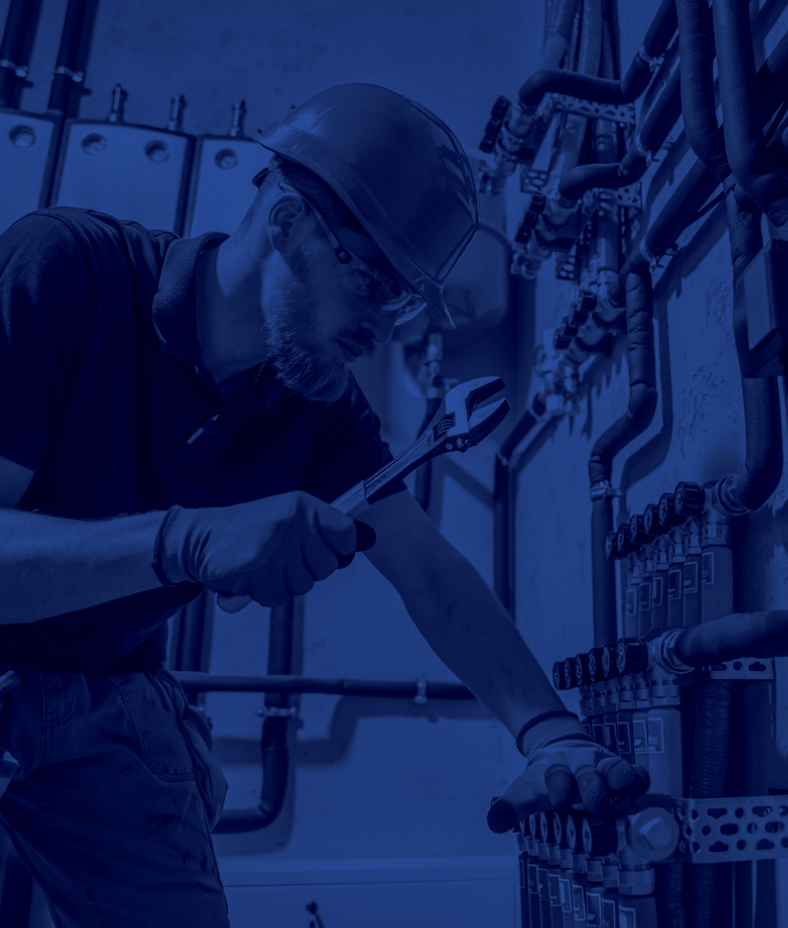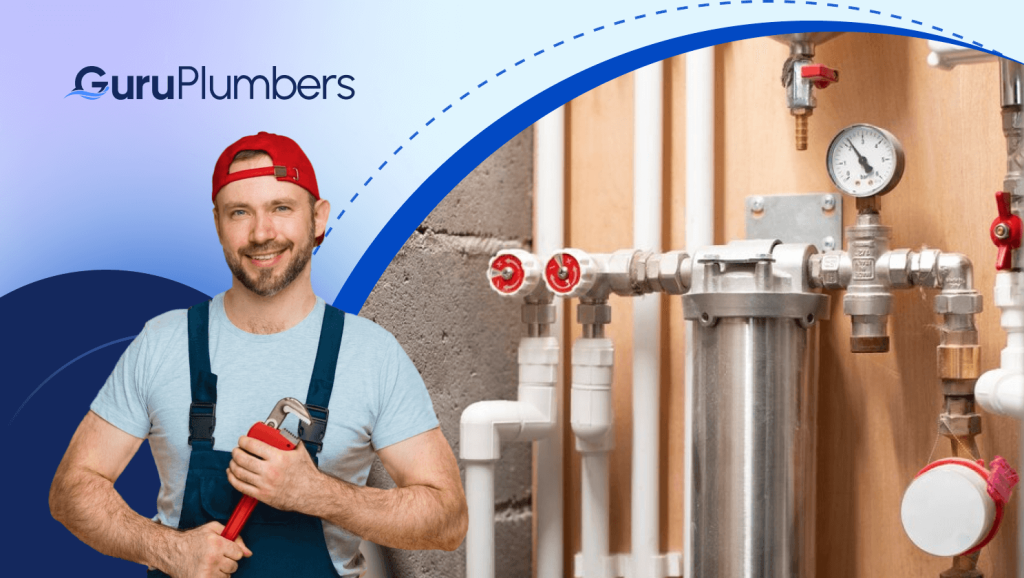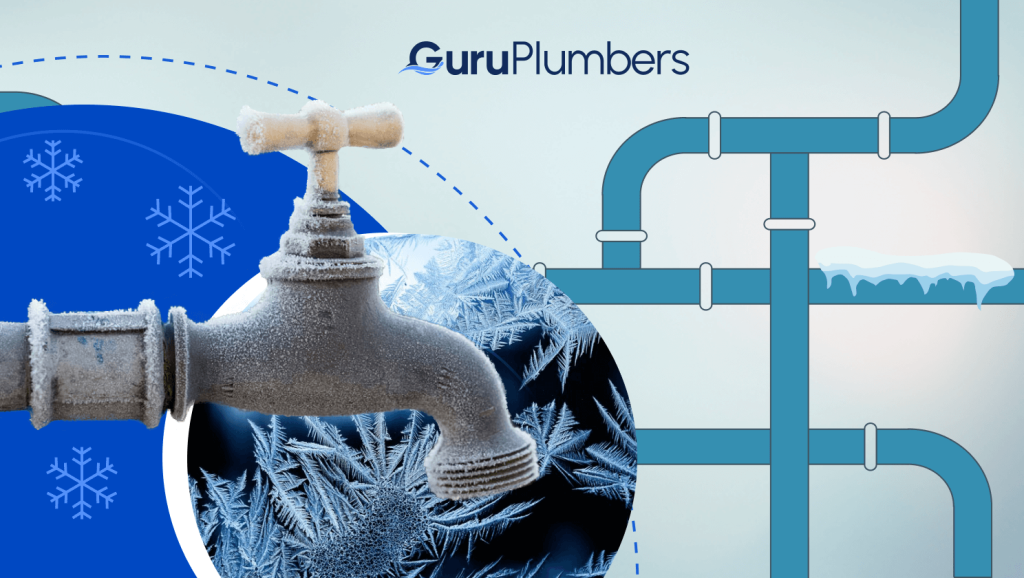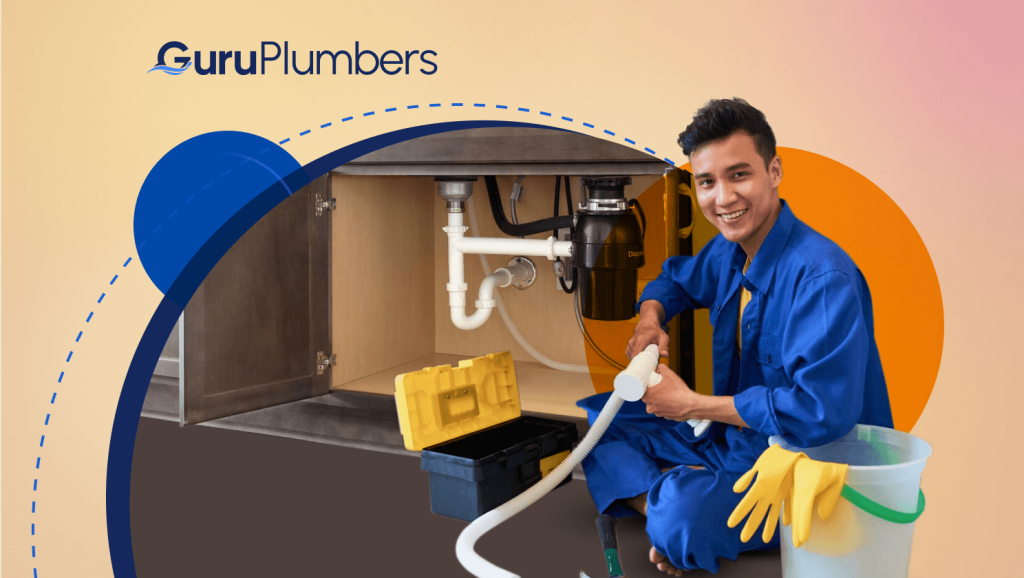Plumbing emergencies can cause inconvenience and damage at any time. When disaster strikes, knowing what to do is vital to minimizing damage and restoring your plumbing system. Common plumbing emergencies include burst pipes, clogged drains, overflowing toilets, water heater malfunctions, and leaky faucets and pipes.
Common Plumbing Emergencies
Burst Pipes
Flooding can occur when pipes burst. This often occurs due to freezing temperatures or high water pressure.
Clogged Drains
It is possible for clogged drains to cause water backup and damage if they are blocked or drain slowly.
Overflowing Toilets
An overflowing toilet can create an unsanitary mess and water damage. This usually results from a blockage in the toilet or sewer line.
Water Heater Malfunctions
A malfunctioning, leaking, or burst water heater can cause significant damage and inconvenience.
Leaky Faucets and Pipes
Leaky faucets and pipes waste water and can cause water damage over time. It is important to address leaks immediately, even if they seem small.
Immediate Steps to Take
Turn off the Water Supply
Locate the main water shut-off valve and turn it off to stop the flow of water and prevent further damage.
Shut off the Water Heater
Turn off the water heater to prevent overheating or further leaks if it’s involved in the emergency.
Address Small Leaks Temporarily
Use towels, buckets, or containers to contain and collect water from small leaks until permanent repairs can be made.
Clear the Area Around the Leak or Issue
Remove items that could be damaged by water or obstruct access to the problem area to facilitate repairs.
Document the Damage (Photos, Videos)
Take photos or videos of the damage and affected areas for insurance claims and to assist plumbers in assessing the situation.
Temporary Solutions
Using Pipe Repair Clamps for Leaks
Apply pipe repair clamps tightly around the leaking pipe to temporarily stop or reduce the flow of water.
Plunging Clogged Drains and Toilets
Use a plunger to try and clear clogged drains and toilets by creating suction to dislodge blockages.
Applying Plumber’s Tape to Minor Leaks
Wrap plumber’s tape around leaking pipe joints or fittings to temporarily seal minor leaks until permanent repairs can be made.
Using a Bucket to Catch Dripping Water
Place a bucket under a dripping faucet or pipe to collect water and prevent it from causing further damage or waste.
These steps and solutions can help mitigate damage and provide temporary relief until professional help arrives.
When to Call a Professional
Signs You Need a Plumber Immediately
- Major Leaks: Large or burst pipes that are flooding your home.
- No Water: Complete loss of water supply in your home.
- Sewage Backup: Sewage coming up through drains.
- No Hot Water: Water heater malfunctions resulting in no hot water supply.
- Persistent Clogs: Drains that remain clogged despite plunging or other DIY efforts.
Risks of Delaying Professional Help
- Increased Damage: Delay can lead to worsening of leaks or clogs, causing more extensive damage to your property.
- Health Hazards: Mold growth can occur after water damage.
- Higher Repair Costs: The longer an issue persists, the more costly repairs can become.
How to Find a Reliable Emergency Plumber
- Local Referrals: Ask friends, family, or neighbors for recommendations.
- Online Reviews: Look up local emergency plumber reviews and ratings online.
- Licensing and Insurance: Ensure the plumber has a valid license and insurance.
- 24/7 Availability: Look for a plumber who is available 24/7.
Preventative Measures
Regular Maintenance Tips
- Check for Leaks: Regularly inspect pipes, faucets, and appliances for leaks.
- Clear Drains: Use drain strainers to prevent clogs and periodically clean drains.
- Water Pressure: Monitor water pressure to prevent pipe damage.
- Water Heater: Remove sediment buildup annually by flushing the water heater.
Identifying Plumbing Issues Early
- Slow Drains: Drains that are slow to empty may indicate a developing clog.
- Water Discoloration: Rusty or discolored water can signal pipe corrosion.
- Strange Noises: Banging, rattling, or whistling noises from pipes can indicate problems.
- Increased Water Bills: Sudden spikes in water bills may indicate hidden leaks.
Installing Water Sensors and Shut-off Systems
- Water Sensors: Install water sensors in vulnerable areas like basements or near water heaters to detect leaks early.
- Automatic Shut-off Systems: Invest in shut-off systems that automatically stop water flow when a leak is detected, preventing extensive damage.
Insulating Pipes for Winter
- Pipe Insulation: Wrap exposed pipes in insulation to prevent freezing and bursting during cold weather.
- Seal Drafts: Seal gaps and cracks near pipes to keep cold air out and prevent freezing.
Maintaining your plumbing system’s functionality can be achieved by implementing these preventative measures.
Dealing with Insurance
Understanding What Your Insurance Covers
- Policy Review: Read your homeowner’s insurance policy to understand coverage for plumbing emergencies.
- Typical Coverage: Water damage and burst pipes are covered by most policies.
- Exclusions: Policy exclusions and conditions may apply to certain types of damage.
Plumbing Damage Claims
- Contact Your Insurance: Report the damage to your insurance company right away.
- Document Damage: Provide photos, videos, and a detailed description of the plumbing emergency.
- Get Estimates: Obtain repair estimates from licensed plumbers for the insurance adjuster.
- Follow Procedures: Follow your insurer’s instructions for filing a claim and providing necessary documentation.
Keeping Records and Receipts for Repairs
- Document Everything: Keep copies of all communications with your insurance company.
- Receipts: Save receipts for repairs, including materials and labor costs.
- Record Details: Note dates, times, and details of all interactions related to the claim.
Final Thoughts
The best way to minimize damage and inconvenience during plumbing emergencies is to prepare ahead of time. By knowing how to respond immediately, temporarily address issues, and when to call a professional, homeowners can protect their property and finances. It’s crucial to also understand insurance coverage, file claims promptly with proper documentation, and keep records of all repairs. Remember to have the contact information of a reliable emergency plumber handy for quick assistance when needed.
Prepare now to avoid costly repairs and disruptions in the future. Stay proactive and ensure your home is equipped to handle unexpected plumbing challenges.
